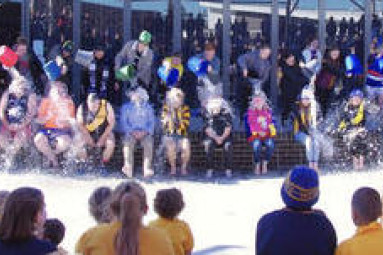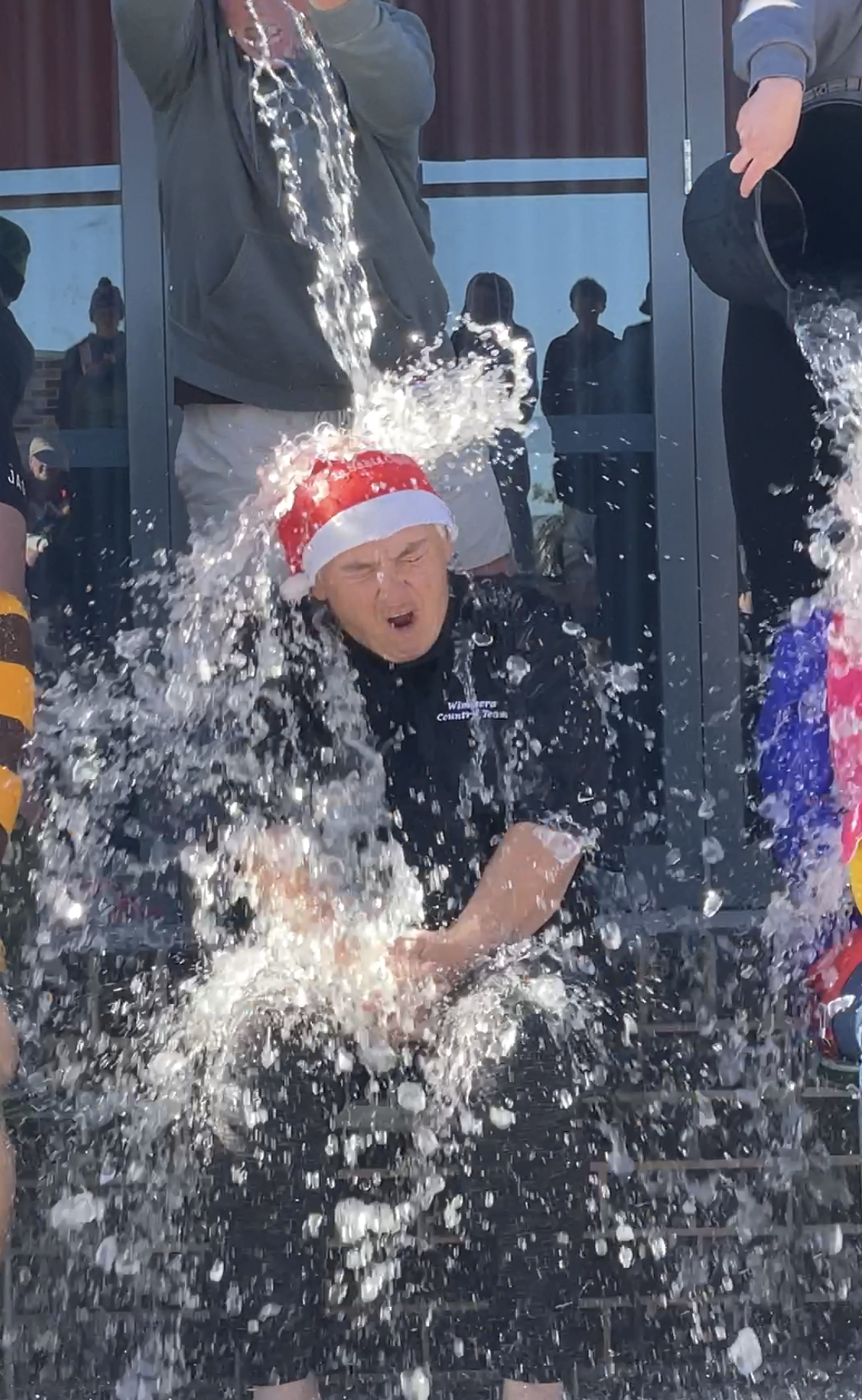General News
16 June, 2024
Braving icy waters
Warracknabeal Education Precinct staff and students gathered last Friday to support Warracknabeal Secondary College's (WSC) Ice Bucket Challenge, raising awareness of the disease and almost $3000 for FightMND.

Motor Neuron Disease (MND) refers to a group of diseases that damage specific nerve cells called motor neurons, preventing them from carrying messages from the brain to the muscles that control walking, talking, eating and breathing.
The disease eventually takes away ones ability to walk, talk, laugh, smile and, eventually, breathe.
The fundraiser was organised by the college's VCE Vocational Major (VM) students.
The students sold 100 FightMND beanies, resulting in $2500 in donations before Friday's lunchtime event which saw 15 participants, including WSC principal Casey Phelan, brave the icy waters.
Coinciding with Footy Colours Day, the gold coin donations numbered $288.05, while outside donations boosted the collection by another $190, for a total of $478.05.
As an extra bonus, each WSC student was given a raffle ticket for each dollar they donated, going in the draw for a chance at tipping the ice bucket onto a participants head.

Research has shown that MND is more common in people over 50, with the risk growing as people get older.
The lifetime risk of developing this disease is about 1 in 300 by the age of 85, however, almost half of those diagnosed are under 60.
Every day two more Australians are diagnosed with MND - and every day two Australians die from it.
The average life expectancy for a patient with MND is two or three years from diagnosis.
There is no single test for MND and diagnosis can be a lengthy process, often several months to a year.

GPs and neurologists study changes in a patient’s condition over time and rule out other conditions that begin with similar symptoms.
In most cases, the cause of MND is unknown.
People with a family history of MND may be interested in genetic testing.
Talk to your doctor - they can refer you to a genetic counselling service.
Read More: Warracknabeal